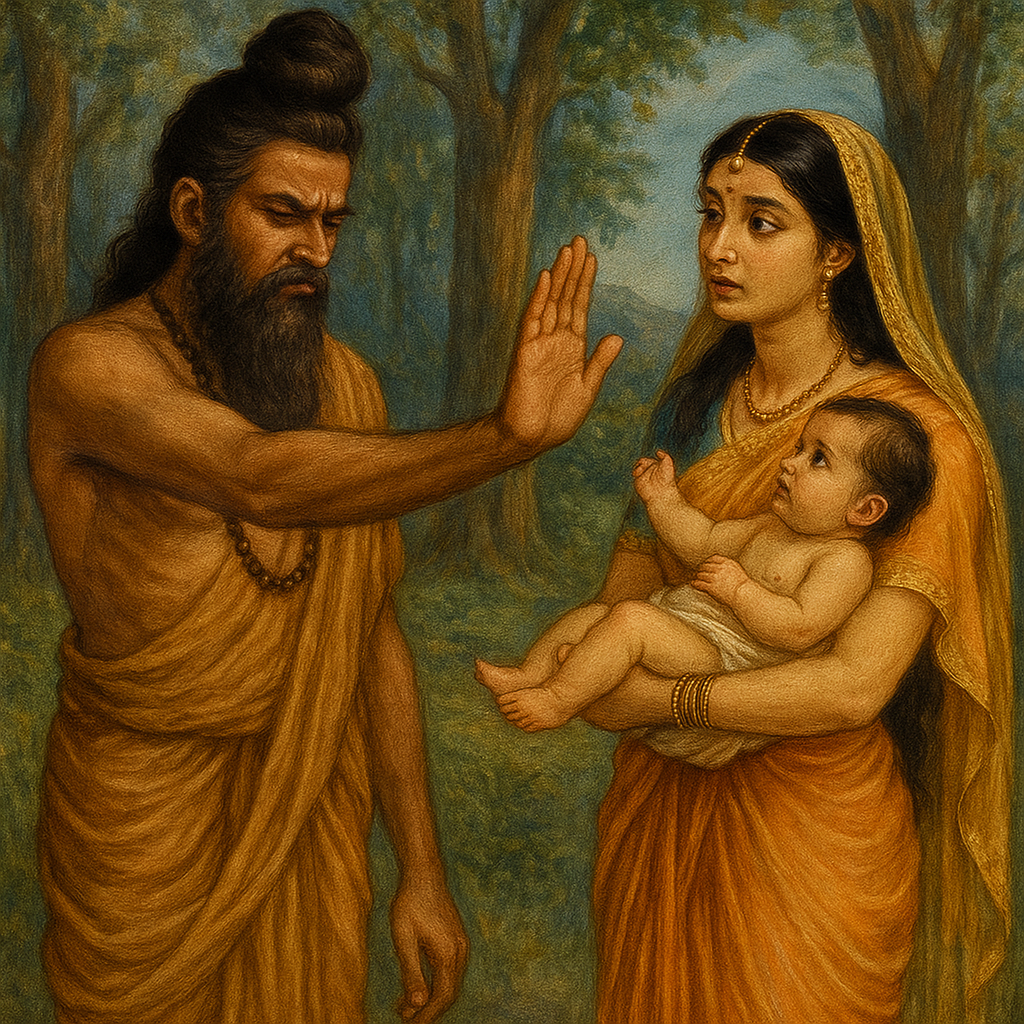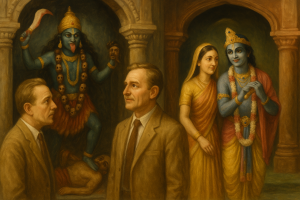There are many fascinating stories in the Vedic scriptures illustrating the journey of spiritual seekers. One such powerful account is that of Viśvāmitra Muni, which serves both as a warning and an inspiration for all sincere sādhakas.
Viśvāmitra was originally a mighty kṣatriya king, a monarch of great valor and power. Yet, he was deeply inspired by the spiritual prowess of Vasiṣṭha Muni, who was his royal priest. Though a king, Viśvāmitra felt humbled in the presence of the sage and yearned to attain similar spiritual strength and realization. This desire led him to renounce his kingdom and adopt the life of an austere yogī.
He withdrew into the forest and began practicing severe yogic meditation. In those days, the system of yoga—true aṣṭāṅga-yoga—was sincerely followed, and great sages could control their minds, senses, and breath, entering into deep trance. Viśvāmitra meditated with such intensity and determination that even Indra, the king of heaven, began to feel threatened.
Just as businessmen fear rising competitors, Indra became anxious, thinking, “This Viśvāmitra is becoming too powerful through his meditation. He may soon qualify for my post as the ruler of the heavenly planets.” In his fear and envy, Indra devised a plan to disrupt Viśvāmitra’s tapasya.
He summoned Menakā, one of the most beautiful heavenly damsels from his celestial court. Menakā was an expert in the art of seduction and trained to allure even the greatest sages. Indra sent her to the hermitage of Viśvāmitra to break his meditation.
As Viśvāmitra sat absorbed in deep trance, the delicate sound of Menakā’s bangles reached his ears. He became alert. Slowly opening his eyes, he beheld the celestial maiden before him, glowing with beauty, charm, and grace. Though Viśvāmitra was a powerful yogī, he could not resist her allure. His concentration broke, and he succumbed to desire.
From their union was born a daughter—Śakuntalā, who later became world-famous for her extraordinary beauty and virtues. Śakuntalā’s story was later immortalized by the poet Kālidāsa in his classical Sanskrit play Abhijñānaśākuntalam.
Yet, after this incident, Viśvāmitra was filled with remorse and disappointment. He lamented, “I was progressing on my spiritual path, and now again I have become entangled in worldly attachments.” Deciding to resume his renunciation, he began to walk away from the hermitage.
At that moment, Menakā approached him, holding their infant daughter in her arms. Little children naturally awaken affection even in renounced hearts. She pleaded, “You are going away, leaving behind such a beautiful daughter? Will you not take care of her?”
There is a famous painting of this very scene: Menakā holds out the child, while Viśvāmitra turns his face away, resisting the pull of attachment, determined to continue his spiritual path. “No more,” he declared, and left the hermitage, choosing again the path of detachment and penance.
Lesson to Be Learned
Even great sages like Viśvāmitra Muni can stumble. The path of yoga and devotion is challenging and filled with tests. However, Kṛṣṇa assures in the Bhagavad-gītā (6.40–44) that no spiritual effort is ever lost. Even if one falls temporarily, such failure is not defeat. It becomes the pillar of future success.
As Śrīla Prabhupāda beautifully said:
“This failure is not discouraging. Kṛṣṇa says that even one fails in completing his spiritual course, still, there is no loss on his part.”
In spiritual life, the Lord sees our effort and sincerity, and He carries what we lack and preserves what we have (BG 9.22). Thus, like Viśvāmitra, let us rise after every fall and continue our journey back to Godhead, learning from both our mistakes and the mercy of the Lord.
Origin of the Story
Narrated by Śrīla A.C. Bhaktivedanta Swami Prabhupāda
Ref. VedaBase® => Bhagavad-gītā 6.40–44 — New York, September 18, 1966

